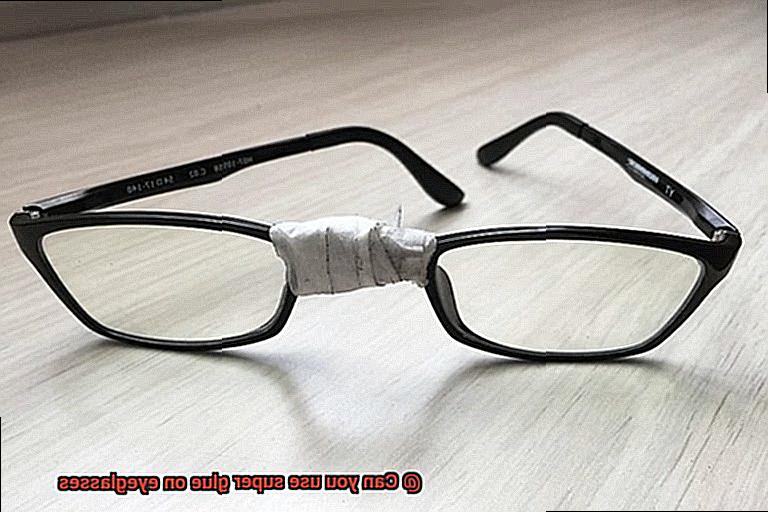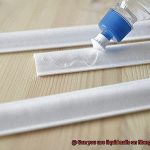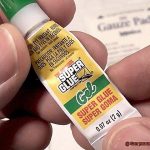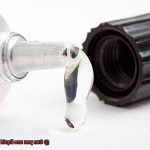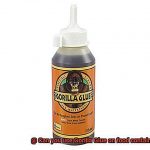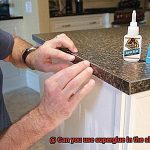Eyeglasses, those trusty companions that help us see the world clearly, can sometimes suffer a little wear and tear. When accidents strike or frames start to crumble, many wonder if super glue can come to the rescue.
Super glue, with its legendary sticking power and lightning-fast drying time, seems like an easy fix. But is it really the best choice for repairing your beloved spectacles? In this blog post, we’ll dive into the pros and cons of using super glue on eyeglasses and share some handy tips for achieving success.
Pros of using super glue:
- Strong bond: Super glue forms a tough-as-nails connection that can hold even the tiniest parts of your glasses together.
- Speedy solution: Unlike other adhesives that take ages to set, super glue dries in a flash, allowing you to get back to seeing clearly in no time.
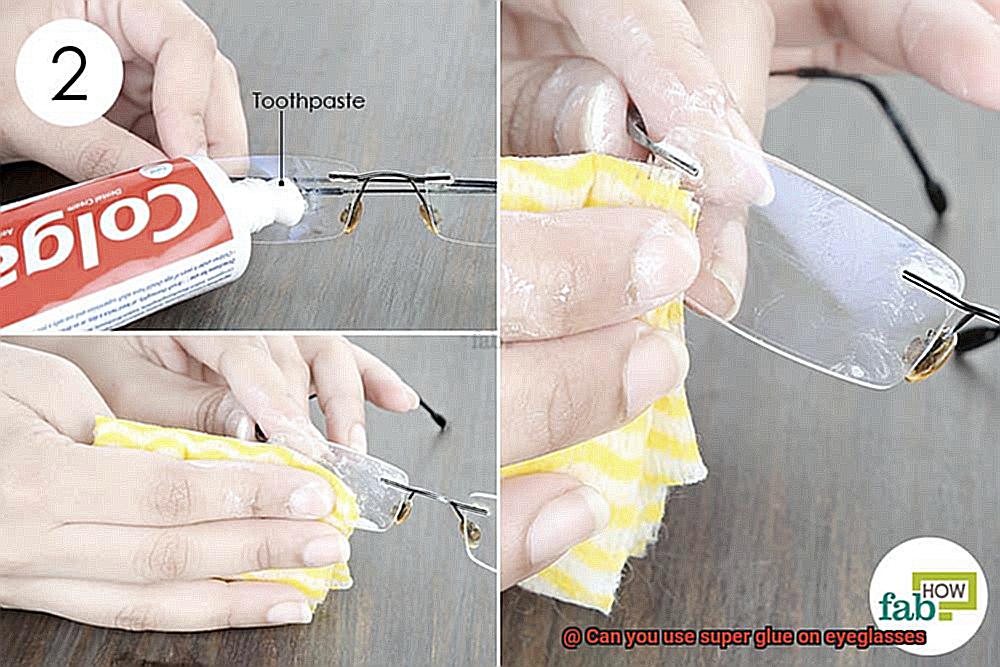
Cons of using super glue:
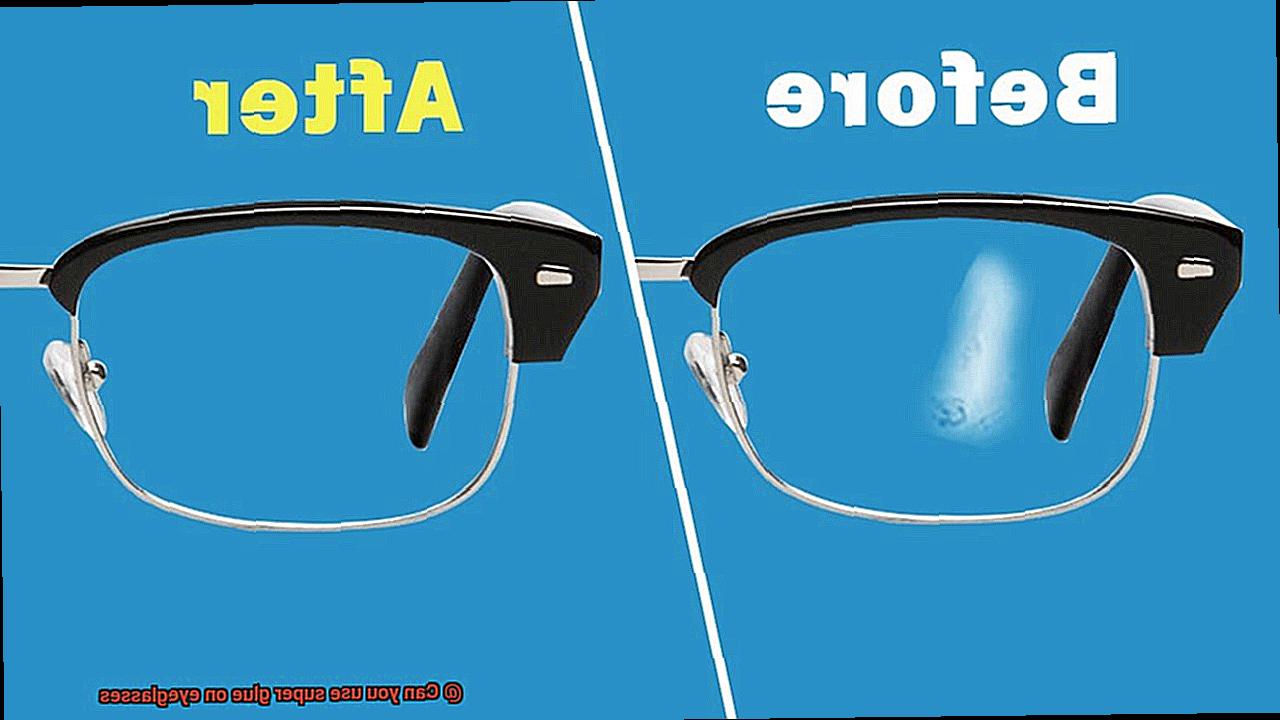
- Visible residue: Super glue can leave behind unsightly marks on your lenses or frames, potentially affecting both how you look and what you see.
- Potential damage: The chemical makeup of super glue can wreak havoc on certain types of eyeglass materials, especially those with fancy coatings like anti-reflective or anti-scratch properties.
- Tricky adjustments: Once you’ve applied super glue, it’s game over for fiddling with parts like nose pads – they’re stuck for good.
Tips for successful results:
- Assess the damage: Before reaching for the super glue, take a moment to evaluate how bad things really are. If it’s just a minor issue, consider seeking professional repair or replacement options instead.
- Less is more: Apply only a teeny-tiny amount of super glue to avoid excess residue and potential lens damage.
- Shield those lenses: Use masking tape or some other clever barrier to protect your precious lenses from glue seepage during the fixing process.
- Precision is key: Apply the glue with surgical precision, making sure the broken parts fit together perfectly before it sets.
- Patience pays off: Follow the instructions on your super glue’s packaging to the letter – giving it enough time to bond and dry thoroughly.
In conclusion, while super glue might seem like a quick fix for your eyeglasses, it’s crucial to weigh up the pros and cons before committing. With
What is Super Glue?
Contents
Super Glue, also known as cyanoacrylate adhesive, is a marvel of modern chemistry that has revolutionized the way we repair and create. Its lightning-fast bonding capabilities and versatility have made it an essential tool in various industries and households. In this comprehensive guide, we will dive deep into the properties, applications, and limitations of Super Glue, shedding light on its secrets and empowering you to make informed choices when harnessing its power.
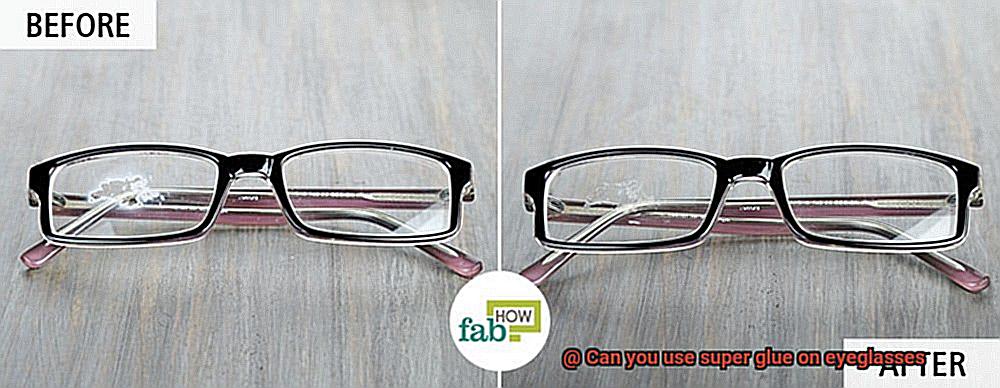
The Science Behind the Bond:
Super Glue’s superpower lies in its ability to create an unbreakable bond in a matter of seconds. When applied to a surface, it reacts with moisture in the air and undergoes a rapid polymerization process. This transformation from liquid to solid occurs in the blink of an eye, forging an inseparable connection between two materials. This lightning-fast bonding process sets Super Glue apart from other adhesives, making it the ultimate go-to for instant adhesion needs.
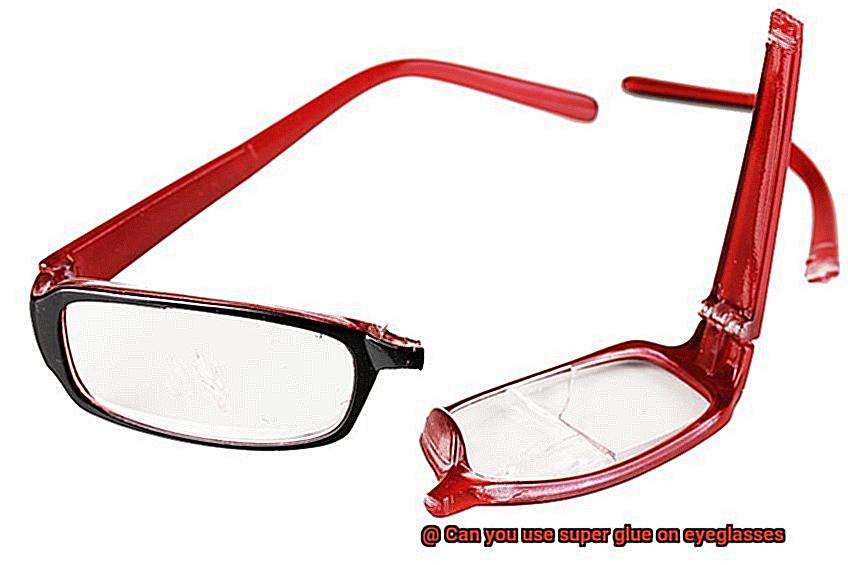
Versatility Unleashed:
Prepare to be amazed by the sheer versatility of Super Glue. It defies boundaries, effortlessly bonding plastics, metals, ceramics, rubber, and even skin. From fixing broken household items like ceramic mugs or plastic toys to securing jewelry findings or patching up automotive parts, Super Glue proves its worth in countless situations. It is a true multitasker that can handle whatever challenge you throw at it.
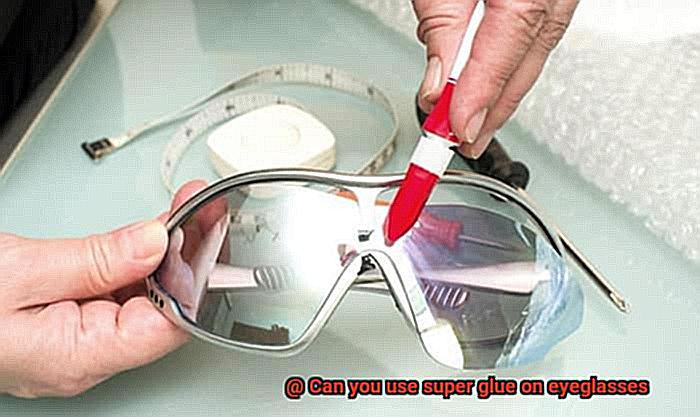
Strength That Withstands:
Once fully cured, Super Glue showcases unwavering strength and resilience against environmental conditions. It fearlessly endures extreme temperatures, moisture, chemicals, and vibrations without sacrificing its bond strength. This exceptional durability makes it suitable for both indoor and outdoor projects, ensuring that your repairs or creations stand the test of time.
Even superheroes have their limitations, and Super Glue is no exception. While it excels in most situations, there are a few considerations to keep in mind. Certain types of plastics or porous materials may not form a strong bond with Super Glue, requiring alternative solutions. Additionally, under constant stress or heavy loads, Super Glue can become brittle over time, potentially compromising its effectiveness. Awareness of these limitations empowers you to choose the right adhesive for every task.
Specialized Formulations: Tailored Solutions:
To conquer the limitations, manufacturers have developed specialized formulations of Super Glue. These advanced variants are specifically engineered to tackle unique challenges. Whether you need to bond difficult plastics or flexible materials, there is a Super Glue variant designed just for you. These specialized formulations offer enhanced flexibility and improved adhesion on challenging surfaces, expanding the possibilities of what you can achieve with this extraordinary adhesive.
Potential Drawbacks of Using Super Glue on Eyeglasses
Well, before you reach for that trusty tube of Super Glue, let’s talk about the potential drawbacks that could make your eyeglass repair a sticky situation.
Damaged Lenses:
Super Glue wasn’t designed for eyeglasses, and using it can leave behind a residue or hazy film on the lens surface. This not only impairs your vision but also makes cleaning your glasses a nightmare. Removing this residue can be tricky and may even cause permanent damage to your lenses.
Lack of Flexibility:
Eyeglasses endure constant wear and tear, so they need to be flexible. Unfortunately, Super Glue is not. If your glue job becomes brittle or breaks under pressure, it could lead to snapped or cracked glasses – definitely not what you want when you’re relying on them for clear vision.
Material Compatibility:
Not all eyeglass materials are created equal. While Super Glue might work better on metal frames, it can cause discoloration or melting on plastic or acetate frames. Nobody wants their stylish frames to turn into a melted mess.
Messy Application:
Applying Super Glue requires precision and careful application to avoid getting glue where you don’t want it – like on your lenses or frames. And removing excess glue from lenses without causing damage is like trying to untangle headphone wires in the dark – frustrating and likely to end in disaster.
Warranty Void:
Using Super Glue on your eyeglasses could void any warranty or guarantee provided by the manufacturer. So if something goes wrong after your DIY repair job, you might be out of luck when it comes to repairs or replacements.
Damage to Lenses
Using super glue on your eyeglass lenses may seem like a quick fix, but it can actually cause more harm than good. The chemicals in super glue can react with the lens material, resulting in discoloration, cloudiness, and even cracks or fractures. Who wants their lenses to look like they’ve been through a war zone?
Now, let’s talk about the materials. Eyeglass lenses are typically made of plastic or glass, both of which are highly susceptible to damage from super glue. Plastic lenses, in particular, are vulnerable to the chemicals in the glue, leaving permanent marks or changes in clarity. Squinting through a hazy lens is definitely not ideal.
But that’s not all. Using super glue on your lenses can also void any warranties or guarantees provided by eyeglass manufacturers. Imagine having broken spectacles and no help from the people who made them. It’s a nightmare.
So what should you do if your lenses become damaged or broken? Seek professional help. Opticians and eyeglass repair shops have the tools and expertise to properly repair or replace lenses without causing further damage. They’ll have your glasses looking brand new in no time.
Prevention is key when it comes to protecting your precious eyeglass lenses. Keep them safe in a protective case instead of tossing them loose into your bag or pocket. And don’t forget to give them some tender loving care by cleaning them regularly with a mild soap and water solution.
Unsightly Residue
When faced with a broken pair of eyeglasses, it can be tempting to reach for the nearest tube of super glue. After all, it promises a quick fix, right? However, using super glue on your glasses can have serious consequences, one of which is the dreaded unsightly residue. Let’s delve into why seeking professional assistance is the wisest course of action.
Imagine this: you apply super glue to your glasses and hope for the best. But instead of a seamless repair job, you’re left with a sticky residue that attracts dirt and dust like a magnet. Your once-pristine glasses are now adorned with unsightly particles, giving them a dirty and unkempt appearance. Not quite the look you were aiming for, huh?
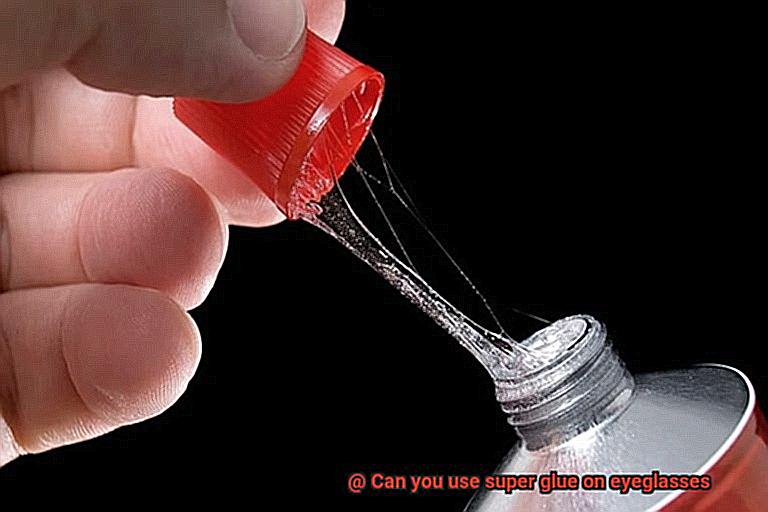
But wait, there’s more. The residue left by super glue can also create a hazy or cloudy effect on your lenses. It’s like trying to see through a foggy windshield – hardly ideal for those of us relying on our glasses for optimal vision.
Removing this stubborn residue without causing further damage is no easy feat. Harsh solvents or scraping methods may end up scratching or discoloring your frames, leaving you with more aesthetic issues to tackle. Talk about adding insult to injury.
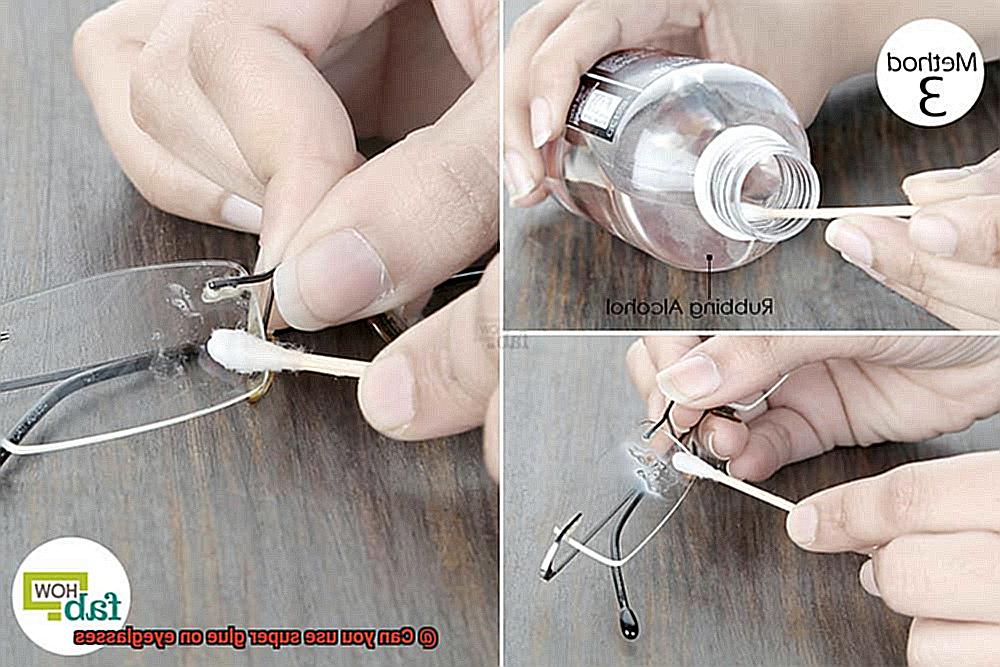
Even if you manage to successfully remove the residue, you might be left with a faint stain or mark on your glasses. This is particularly frustrating if you’ve invested in expensive or designer eyewear – it’s like having a permanent reminder of your DIY mishap.
So what’s the best way forward? Seek professional help. Opticians and eyeglass repair specialists are the superheroes in this situation. With their arsenal of tools, wealth of knowledge, and years of experience, they can expertly repair your glasses without leaving behind any unwanted residue or causing further damage.
Specialized Adhesives for Eyeglass Repairs
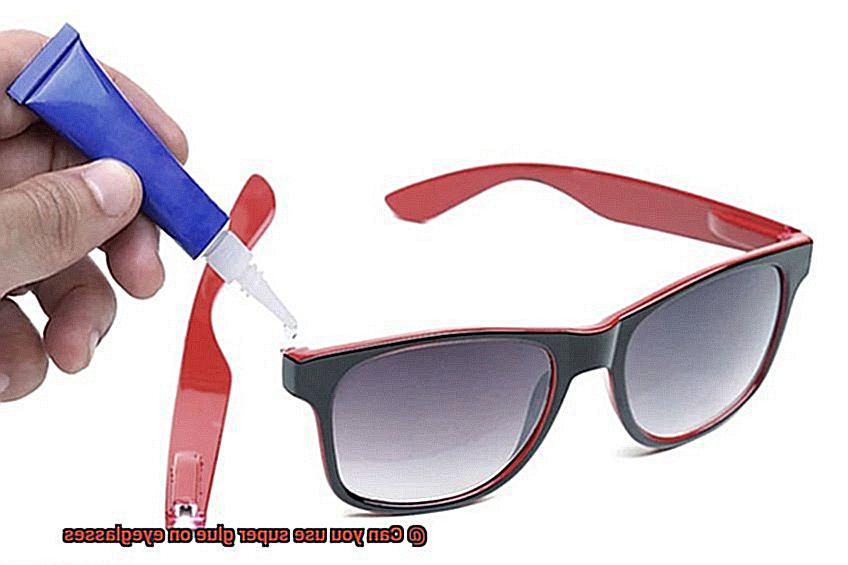
When it comes to repairing your eyeglasses, you need an adhesive that is specifically designed for the task. Fortunately, there are several types of specialized adhesives available that are perfect for eyeglass repairs. Let’s dive into the world of these adhesives and explore their uses and benefits.
One popular choice for eyeglass repairs is cyanoacrylate glue, commonly known as super glue. However, not all super glues are suitable for use on eyeglasses. It is crucial to select a formula that is specifically designed for this purpose. Eyeglass repair kits often come with specialized super glue that is safe and effective for fixing broken frames and hinges.
Another type of adhesive commonly used for eyeglass repairs is UV-curing adhesive. These adhesives are activated by exposure to ultraviolet light and are often used for bonding glass lenses to frames. They provide a strong and durable bond, ensuring that your lenses stay securely in place.
Epoxy resins are also a popular choice for repairing eyeglasses, especially metal frames or attaching nose pads. These adhesives offer a robust and long-lasting bond, making them perfect for more substantial repairs.
To achieve the best results when using specialized adhesives for eyeglass repairs, it is essential to follow the instructions carefully and thoroughly clean the surfaces to be bonded. Remove any dirt, oil, or residue that may affect the adhesive’s effectiveness.
It is important to handle these adhesives with care and work in a well-ventilated area. Avoid any contact with your skin or eyes, as some adhesives can be irritating or harmful.
While specialized adhesives can be effective for many eyeglass repairs, it is important to note that they may not be suitable for all types of damage. In some cases, it may be necessary to consult a professional optician or eyeglass repair service for more complex repairs or replacements.
Seeking Professional Assistance
Picture this: your beloved eyeglasses break, and the temptation to grab the nearest tube of super glue is strong. After all, super glue seems like a magical fix-all solution, right? But when it comes to repairing eyeglasses, it’s crucial to resist the urge and seek professional assistance instead. In this blog post, we’ll delve into the potential risks and drawbacks of DIY repairs with super glue, highlighting why trusting the experts is the smarter choice.
Delicate Repairs Require Precision:
Eyeglasses are delicate devices that demand precise repairs. Opticians and eyeglass repair specialists possess the necessary tools and expertise to handle these repairs with meticulous care. They can assess the damage and determine the best course of action, whether it involves replacing a broken part or making adjustments to the frame. DIY repairs with super glue lack the precision required for optimal functionality.
Super Glue Pitfalls:
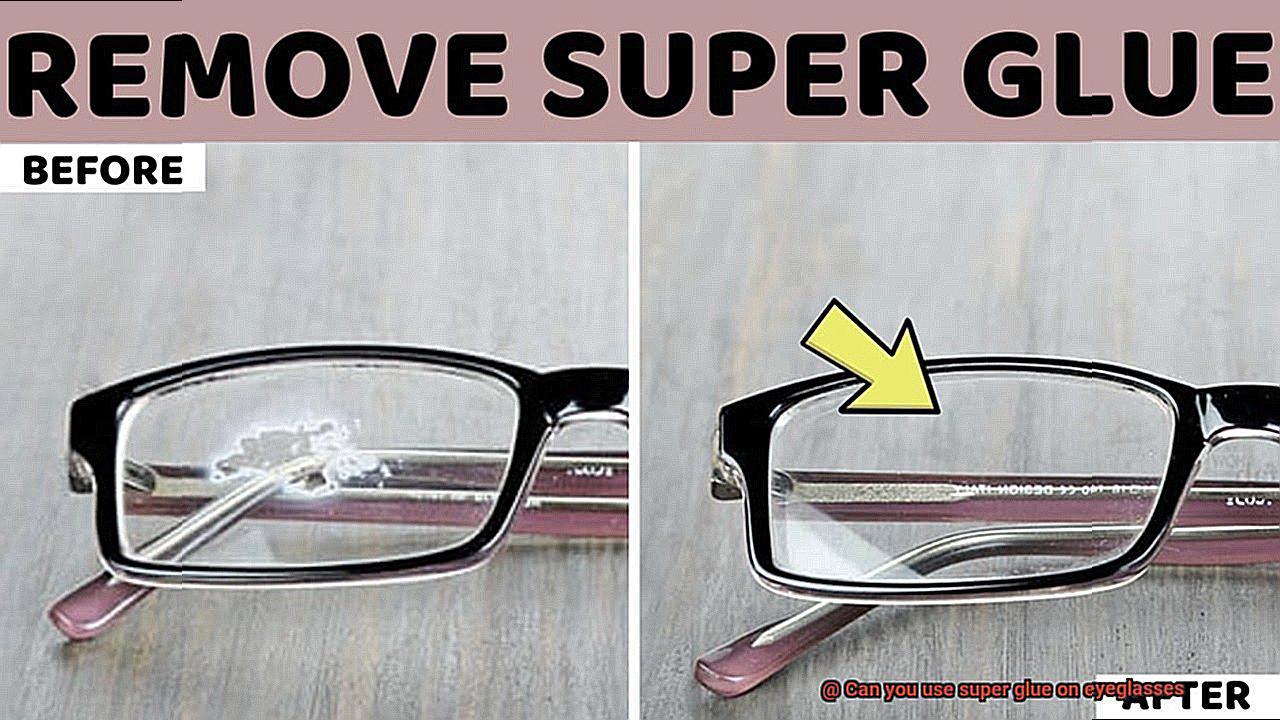
While super glue boasts strong bonding capabilities, it can create a sticky situation if not applied correctly. Eyeglasses have intricate components like hinges and screws that demand proper alignment for peak performance. Haphazardly applying super glue may result in misalignment or even permanent damage to these crucial elements.
Compatibility Issues:
Super glue isn’t specifically designed for use on eyeglasses, making compatibility a significant concern. It may not adhere well to certain frame materials like acetate or titanium, leading to weak bonds or glue degradation over time. These issues can necessitate further repairs or render your DIY fix useless.
Lens Damage:
Using super glue on eyeglasses poses risks to your lenses as well. The chemicals in super glue can damage or discolor certain lens materials, compromising your vision and the overall quality of your eyewear.
Warranty Void:
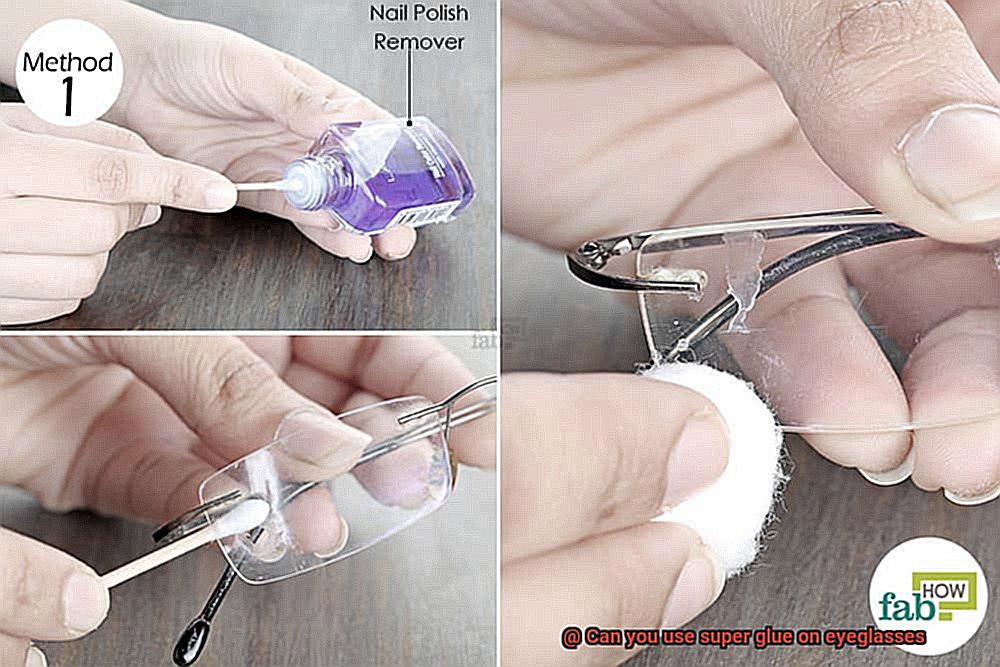
If your eyeglasses are still under warranty, attempting DIY repairs with super glue could void that warranty. It’s always advisable to consult the manufacturer or retailer first and explore your options for professional repairs.
Alternatives to Super Glue for Eyeglasses
We’ve all been there – your favorite pair of glasses breaks, and you’re left searching for a quick fix. While super glue may seem like a convenient option, it can actually cause more harm than good. But fear not. In this article, we’ll explore some alternative solutions that are safe and effective for repairing eyeglasses.
Clear Nail Polish:
When it comes to small cracks or chips in your glasses, clear nail polish is a simple yet effective alternative to super glue. Its clear formula ensures a seamless repair, and its quick-drying nature makes it an excellent choice. Just make sure to choose a shade that matches the color of your glasses for an invisible fix.
Epoxy Resin:
If you’re looking for strength and durability, epoxy resin is the way to go. Widely used in industrial applications, it can also be used to fix eyeglasses. Check your local hardware store for epoxy resin specifically designed for bonding different materials. Follow the instructions carefully to ensure a successful repair that will stand the test of time.
Dental Adhesive or Denture Repair Kits:
Surprisingly, dental adhesive or denture repair kits can also come to the rescue when your glasses are in need of fixing. These products are designed to bond to teeth and can provide a strong hold for your glasses as well. Though they may not be as readily available as other alternatives, they can be a viable option for temporary repairs until you can get professional help.
Double-Sided Tape or Clear Adhesive Strips:
For a quick and temporary fix, double-sided tape or clear adhesive strips can hold your glasses together until you can get them properly repaired. While not as long-lasting as other alternatives, they can provide an immediate solution in emergency situations or when you’re on the go.
d81VnEunObs” >
Also Read: Can I use Gorilla Glue on glasses?
Conclusion
In conclusion, the allure of a quick fix for your eyeglasses may tempt you to reach for super glue, but it’s crucial to consider the pros and cons before taking the plunge. While its strong bond and rapid drying time are enticing, super glue also comes with potential drawbacks that should give you pause.
The residue left behind on lenses or frames is an unsightly consequence of using super glue. Additionally, certain types of eyeglass materials can be damaged by its powerful adhesive properties. These factors should make you think twice before grabbing that tube.
Instead of relying on a DIY solution, it’s wise to explore professional repair or replacement options for minor issues. However, if you still decide to use super glue, exercise caution by applying only a small amount to avoid excess residue and potential lens damage. Employ masking tape or another protective barrier to shield your lenses during the fixing process, and handle the glue with precision.
Ultimately, prevention is key in maintaining your eyeglasses’ longevity. Store them in a protective case when not in use and clean them regularly with a gentle soap and water solution. In the unfortunate event that your glasses become damaged or broken, don’t hesitate to seek assistance from opticians or eyeglass repair specialists who possess the necessary tools and expertise for proper repairs without any unwanted residue or further damage.

